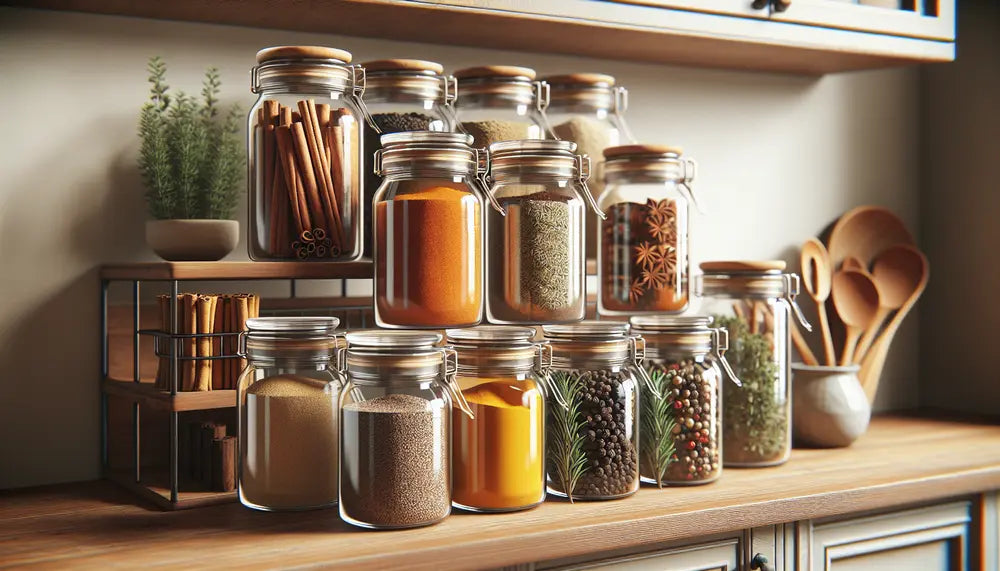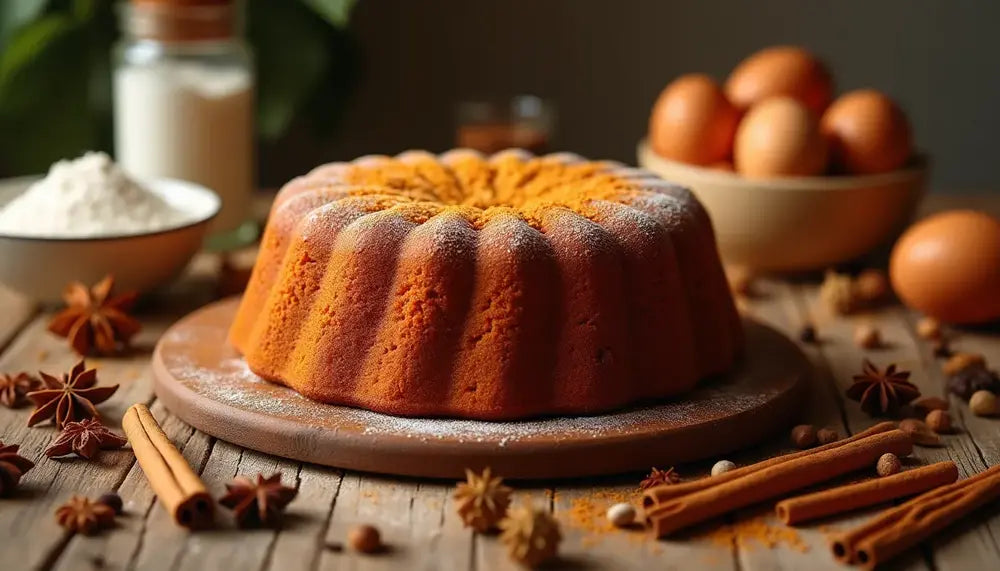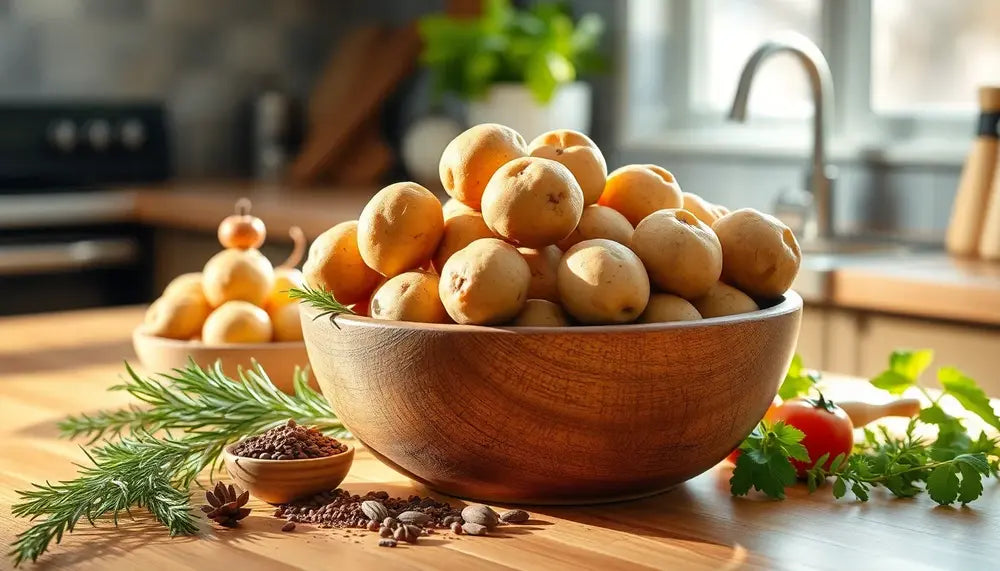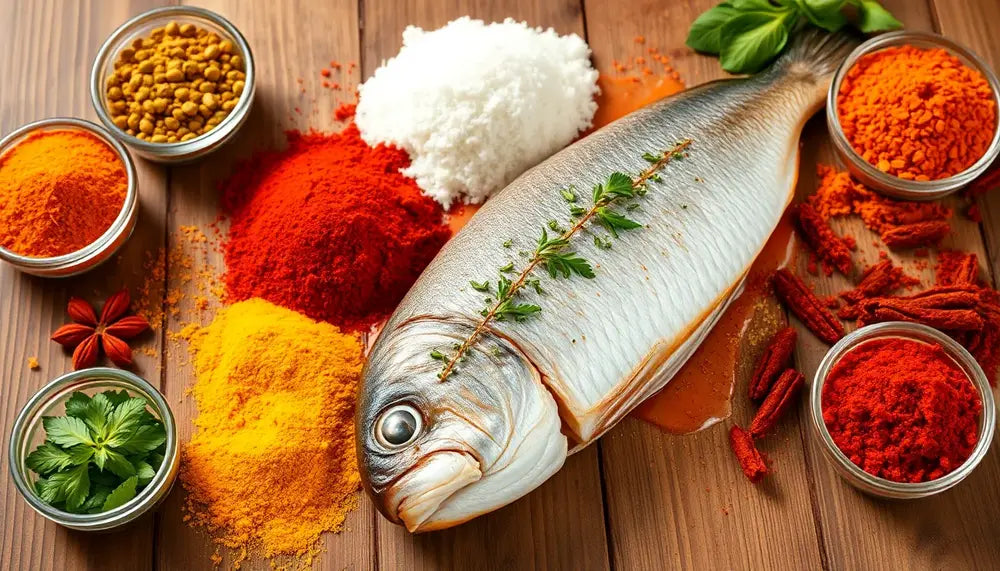Why is storing spices correctly important?
Proper storage of spices plays a crucial role in maintaining quality and taste. Spices contain essential oils and other volatile compounds that give them their unique aroma and flavor. However, these components are very sensitive to environmental influences such as light, heat and moisture. If a spice is not stored appropriately, it can quickly lose its aroma and thus also its effectiveness in the kitchen.
Not only the loss of taste, but also quality assurance is an important reason for storing your spices carefully. Improper storage can lead to the formation of mold or oxidation, which can make the spices not only inedible but also harmful to health. Proper storage ensures that the spices remain free of contamination and allow you to enjoy their benefits for longer.
Adopting an optimal storage routine also helps promote sustainability in the kitchen by reducing waste from expired or spoiled spices. This contributes to long-term cost efficiency by avoiding frequent substitution of spices and reinforces the principles of responsible consumption.
The basic rules for storing spices
To preserve the quality and aroma of your spices over time, there are some basic storage rules that should be followed:
- Storage location: Choose a cool, dry, dark place to store your spices. Avoid places near heat sources such as the stove or dishwasher and direct sunlight, as heat and light accelerate the chemical processes that cause flavor loss.
- Airtight containers: Store spices in airtight containers to protect them from moisture and other environmental influences. Glass jars with tight-fitting lids or special spice jars are ideal.
- Labeling and organization: Label the containers with your name and date of purchase or opening. Good organization helps you keep track and prioritize the use of older stocks before they lose their flavor.
These simple measures will not only extend the shelf life of your spices, but also help maintain their flavor quality. By following these basic rules, you'll maximize the enjoyment of any meal that uses spices.
Optimal conditions for storing spices
In addition to the general basic rules, there are specific conditions that should be taken into account for the optimal storage of spices:
- Temperature control: The ideal temperature for storing spices is between 10°C and 20°C. Temperatures that are too high can cause the essential oils in the spices to decompose more quickly.
- Humidity control: Low humidity is crucial to avoid exposure to moisture and the associated mold formation. The relative humidity should ideally be below 60%.
- Avoiding cross-contamination: Be sure to store strong-smelling spices separately to avoid affecting other flavors. For example, turmeric should not be stored next to vanilla as spice flavors can cross over.
By following these specific guidelines, you will ensure that the spices stay fresh and flavorful for longer. These measures ensure that the characteristic taste of each individual spice is preserved and contribute to the quality of your food.
Common mistakes when storing spices and how to avoid them
When storing spices, it is easy to make mistakes that affect their shelf life and taste. Here are some of the most common mishaps and tips on how to avoid them:
- Neglecting cleaning: Spice containers and racks should be cleaned regularly to remove debris and old spice residue that can promote mold growth and flavor transfer.
- Use of unsuitable containers: Avoid storing spices in porous containers such as paper or non-airtight plastic bags, as these do not adequately block the entry of moisture and air.
- Overfilling the containers: Spices should not be filled to the top of the container. A small amount of clearance helps better preserve flavor and prevents pressure that could damage the spice.
By following these tips, you will avoid the most common storage mistakes and help your spices retain their full aroma and quality over a longer period of time.
How long do spices last?
The shelf life of spices can vary depending on the type of spice and storage conditions:
| Spice type | Shelf life (unopened) | Shelf life (opened) |
|---|---|---|
| Whole spices | 3-4 years | 1-2 years |
| Ground spices | 2-3 years | 6 months to 1 year |
| Herbs | 1-3 years | 6-12 months |
It is important to note that this information is a general guideline and actual shelf life will depend on specific storage conditions. To ensure maximum shelf life, spices should be stored in an ideal environment and regularly checked for quality and freshness.
Remember that sensory quality — such as smell and taste — is often a better indicator of freshness than the printed best-before date. If spices have lost their characteristic scent, this is a sign that they may no longer have the desired effect in your recipes.
Practical tips for checking whether a spice has expired
It is not always easy to determine whether a spice is past its prime. Here are some practical tips to help you identify whether a seasoning may be expired:
- Visual inspection: Check the seasoning for discoloration or lumps, which could be an indication of moisture exposure and possible loss of quality.
- Smell test: Open the container and smell the spice. Fresh spices have a strong, characteristic smell. A faint smell or no smell at all may indicate that the spice has lost its potency.
- Taste test: If you are unsure, you can try a small amount of the spice. It should have a clear and distinct taste. If this is missing, the spice is probably no longer effective.
When reviewing spices, keep in mind that regular sensory testing is the best way to ensure your spices are suitable for use in meals. Spices that have lost their sensory properties not only affect the taste of the food but can also lead to an unsatisfactory cooking experience.
Conclusion: This is how the taste of your spices is preserved
Proper storage of spices is crucial to preserving their taste and quality over time. By following simple but effective guidelines, you can ensure your spices stay fresh and flavorful.
Always remember the importance of a cool, dry and dark storage location and the use of airtight containers. Avoid common storage mistakes like using unsuitable containers or neglecting regular cleaning. Organize your spice collection carefully and carry out regular quality checks to ensure that each spice retains its optimal properties.
Use these guidelines to unleash the full flavor and aromatic power of your spices in every dish. Your dining experience will inevitably be enhanced and your food will always maintain that touch of excellence that only fresh and well-cared for spices can provide.
FAQ: Optimal storage of spices for maximum aroma retention
Why is storing spices so important for their quality?
Proper storage of spices is crucial to preserving their taste, aroma and color. Unfavorable storage conditions such as moisture, light and heat can cause spices to lose their aroma more quickly and even become unusable.
What are the ideal conditions for storing spices?
Spices should be stored in a cool, dry and dark place. The use of airtight containers is recommended to prevent moisture and other contaminants from entering.
How long can spices be stored before they lose their flavor?
Whole spices can last up to four years when stored properly, while ground spices last about two to three years. However, it is crucial that the storage conditions are optimal.
Can spices go bad and if so, how do I know?
Yes, spices can go bad. Signs of this include a loss of smell, discoloration and, in the case of ground spices, the development of lumps. A decrease or absence of the characteristic aroma indicates that the spices have lost their potency and should be replaced.
Which spices should be stored particularly carefully?
Spices with a high fat content such as nuts or seeds and very fine powders such as paprika and turmeric should be stored with particular care as they are more susceptible to oxidation and moisture absorption, which can lead to rapid loss of flavor.





Share:
The ultimate spice list: must-haves for the kitchen
Delicious potato soup: spices for the perfect taste